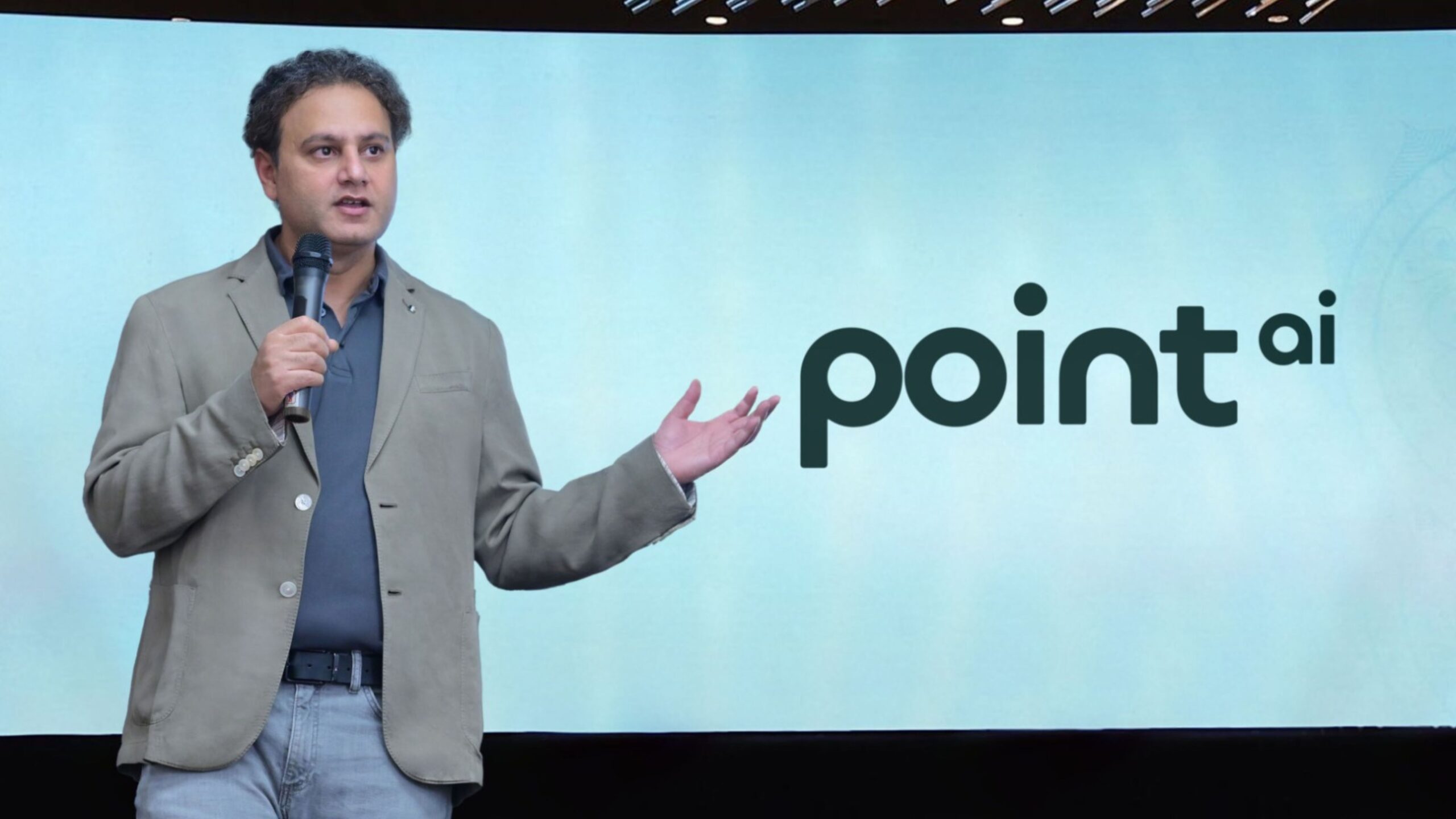AsiaTechDaily – Asia's Leading Tech and Startup Media Platform

Why PointAI’s ₹47 Crore Raise Matters — and what its tech really buys the startup
Pre-Series A from Yali Capital, Lip-Bu Tan and Tremis Capital backs a virtual try-on specialist betting on speed, IP and B2B economics.
PointAI, the Noida-based deep-tech firm formerly called Try ND Buy, has raised ₹47 crore in a Pre-Series A round led by Yali Capital, with participation from Lip-Bu Tan (chairman, Walden International) and Tremis Capital. The company said the capital will be used to speed product development, strengthen its AI stack and push deeper into markets such as the US, UK and Japan.
What PointAI sells — and how it claims to be different
PointAI builds virtual-try-on (VTO) and simulation-based commerce tools that let online shoppers “try” items, mix outfits and interact with a virtual salesperson in real time. The startup says its in-house parallel AI architecture — protected by more than 70 global patents — produces high-precision images, video and 3D assets with B2B-grade accuracy but using far less GPU time than typical generative models. According to company statements, PointAI can render each media asset in about 1–2 seconds at a fraction of the cost of alternative GenAI approaches.
Why that matters: for retailers, rendering time, repeatability and cost are practical constraints. If a vendor can deliver hyper-realistic assets instantly and cheaply at catalogue scale, it reduces friction for large platforms to embed these features across millions of SKUs.
Client traction and geographic reach
PointAI lists several well-known customers — including Amazon SPN, Flipkart, Myntra and Rakuten — and maintains offices or presence in markets including the US, UK and China. These partnerships suggest early commercial validation among large e-commerce players, and create referenceable use cases for future enterprise sales.
Why investors are backing it — an analytical view
- Deep-tech moat: The company highlights a large patent portfolio and a bespoke parallel AI architecture. For enterprise buyers, IP and model control matter more than flashy demo videos; investors likely see defensibility there.
- Unit economics: The big sales pitch is cost and latency — rendering in seconds and lowering GPU spend. If true at scale, this changes the operational math for brands that need thousands to millions of assets. Contracts with enterprise customers could therefore carry attractive margins.
- Customer validation: Early contracts with major marketplaces reduce go-to-market risk. Marketplaces can act as force multipliers — integrating VTO into a platform increases adoption across their merchant base.
Risks and challenge areas to watch
- Benchmarking claims: Faster render times and lower costs are compelling, but third-party benchmarks and independent proofs of performance will be important for skeptical enterprise buyers.
- Integration and scale: Integrating new media pipelines into legacy e-commerce stacks (catalog ingestion, CDN, personalization) can be technically heavy — success depends on smooth, low-cost integration.
- Competition and commoditisation: Large cloud providers and AI startups are rapidly improving generative media. PointAI’s patent position and client list will need to translate into long-term contracts to avoid commoditisation.
- Data and privacy: VTO often requires body models and personal data; managing consent, privacy and regulatory compliance across markets will be operationally important.
Go-to-market and growth levers
PointAI can push growth along several coordinated channels:
- deepen integrations with big marketplaces to become a platform standard;
- offer plug-and-play modules for brands (catalog automation, virtual sales assistants) to lower adoption friction;
- target categories with high return rates (apparel, accessories) where VTO can show direct ROI;
- pursue OEM or licensing deals where its IP can be embedded in partner stacks.
Funding context and what comes next
With this Pre-Series A, PointAI joins a crowded but growing cohort of startups focused on commerce-grade AI media. The ₹47 crore injection (bringing total funding to roughly the $9–10m range, per company statements) should help accelerate productisation and sales, but the next test will be measurable business outcomes — reduced return rates, improved conversion and predictable ARR from enterprise contracts. Investors will watch those metrics closely ahead of a full Series A.
Conclusion — pragmatic optimism
PointAI’s raise is a vote of confidence in a practical approach to virtual commerce: solve for speed, reliability and unit economics rather than just visual novelty. The firm’s IP and marquee clients give it a credible starting point, but turning that into a durable, scalable business requires clear, independently verifiable performance, low-friction integrations and strong contractual revenue. For Asia’s e-commerce and startup audience, PointAI is a company to watch — not because it promises flashy demos, but because it is selling the tighter, cost-effective infrastructure that large retailers need to make virtual try-on a mainstream feature.
Quick Takeaways
- Funding Round: ₹47 crore ($5.3M) Pre-Series A
- Investors: Yali Capital (lead), Lip-Bu Tan (Walden International), Tremis Capital
- Total Funding: Around $10 million to date
- Core Tech: Proprietary parallel AI architecture; 70+ global patents
- Product Focus: Virtual try-on and simulation-based shopping for e-commerce
- Performance Claim: Renders 3D media in 1–2 seconds, at up to 90% lower cost than GenAI models
- Key Clients: Amazon SPN, Flipkart, Myntra, Rakuten Japan
- Founded: 2018 by Nitin Vats; headquartered in Noida
- Use of Funds: Product innovation, tech scaling, and expansion in the US, UK, Japan
- Investor Insight: Deep-tech moat, strong IP base, and early enterprise traction make PointAI a promising deep-tech player in India’s AI ecosystem



